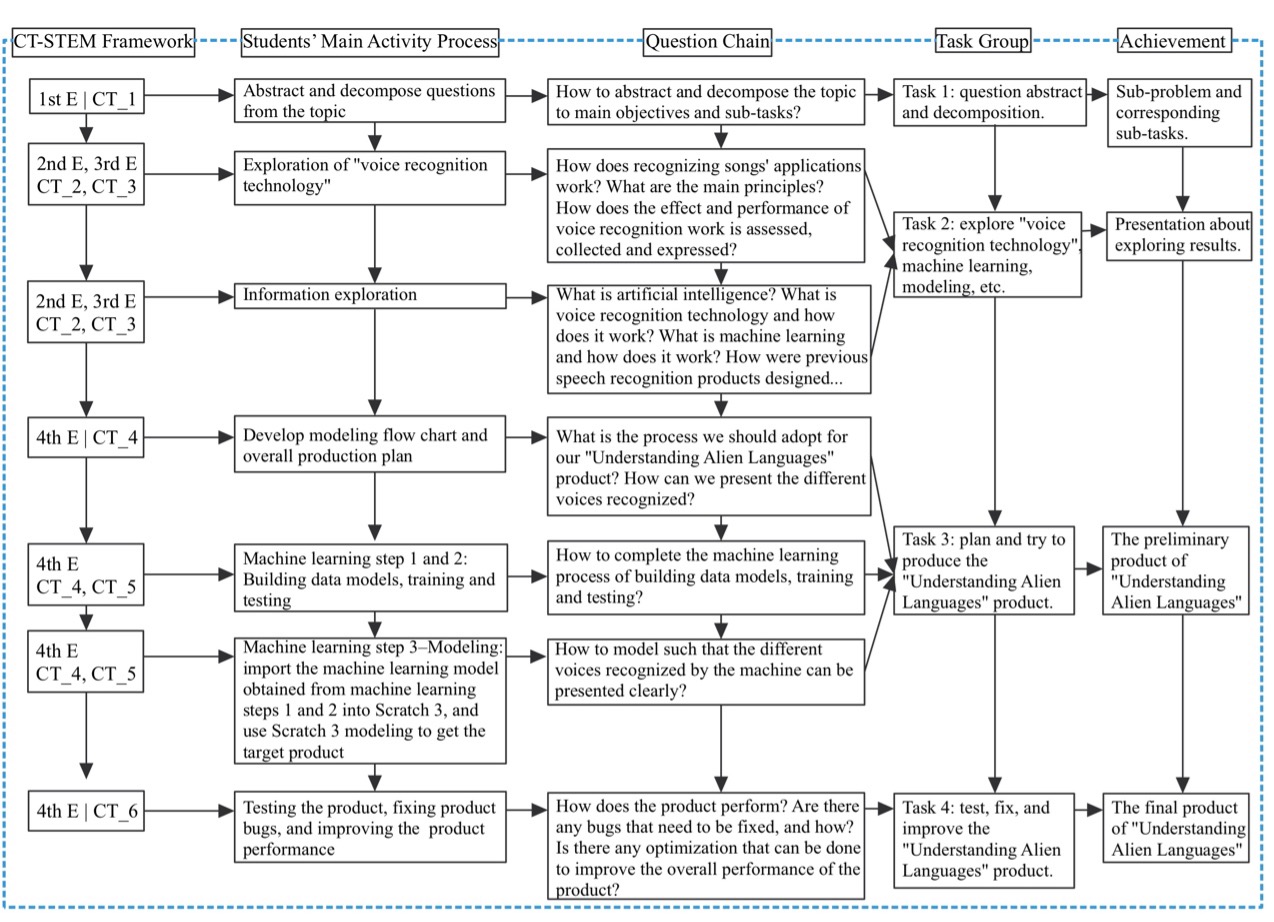A Pedagogical Framework to Foster Computational Thinking in STEM
The research process of this project has been completed. I'm writing the paper titled "A Pedagogical Framework to Foster Computational Thinking in STEM From the Perspective of Teachers"
In this digital era, the cultivation of students’ computational thinking (CT) is increasingly important, yet widely accepted STEM course frameworks that integratively foster students’ computational thinking skills are still scarce. Addressing this gap, this study proposes a CT-STEM pedagogical framework—a CT-STEM course process framework and a sample lesson plan—to enhance students’ CT and STEM competencies and literacy, offering valuable insights and practical guidance for educators.
The CT-STEM course process framework proposed in this study was developed through collaboration with Zuokun LI, a Ph.D. student from the Educational Research Center of the University of Macau. Specifically, the CT-STEM course process framework was based on Li et al.’s (2021) relatively comprehensive CT process framework corresponding to the design base learning (DBL) loop. Compared with other CT frameworks, adjustments and refinements were made, especially by adding the essential “testing and debugging” and “iteration and generalization” stages, ultimately creating a CT course process framework flow with seven major steps integrated into the 5E instructional model (Bybee et al., 2006). This resulted in the CT-STEM course process framework shown below:

Building on this CT-STEM course process framework, a sample lesson plan titled “Understanding Alien Language” was developed, targeting junior high school students, which incorporates elements of physical acoustics, machine learning, and modeling to provide an engaging experience that fosters computational thinking.

Through semi-structured interviews with eight seasoned STEM teachers in Macau, the proposed CT-STEM pedagogical framework received endorsement, and its potential efficacy (knowledge, skills, and attitudes) along with implementation challenges were addressed and discussed. Utilizing epistemic network analysis (ENA), the study reveals that the CT-STEM pedagogical framework can potentially foster various students’ learning outcomes, while establishing crucial cognitive connections and co-occurrences among these outcomes. On the other hand, they raised several potential challenges that may plague practical implementation in classrooms. Overall, this study theorized the CT-STEM pedagogical framework design is accessible, effective, and beneficial from the teachers’ perspective within the expectant challenges, offering novel and systematic insights for evidence-based CT-STEM pedagogical design for practitioners and further research.
The related paper titled “A Pedagogical Framework to Foster Computational Thinking in STEM: From the Perspective of Teachers” has been completed and is currently reviewing by the co-author.
This research was conducted in collaboration with Zuokun LI, a Ph.D. student from the Educational Research Center of the University of Macau, under the supervision of Prof. Emily Pey-Tee OON from the University of Macau.